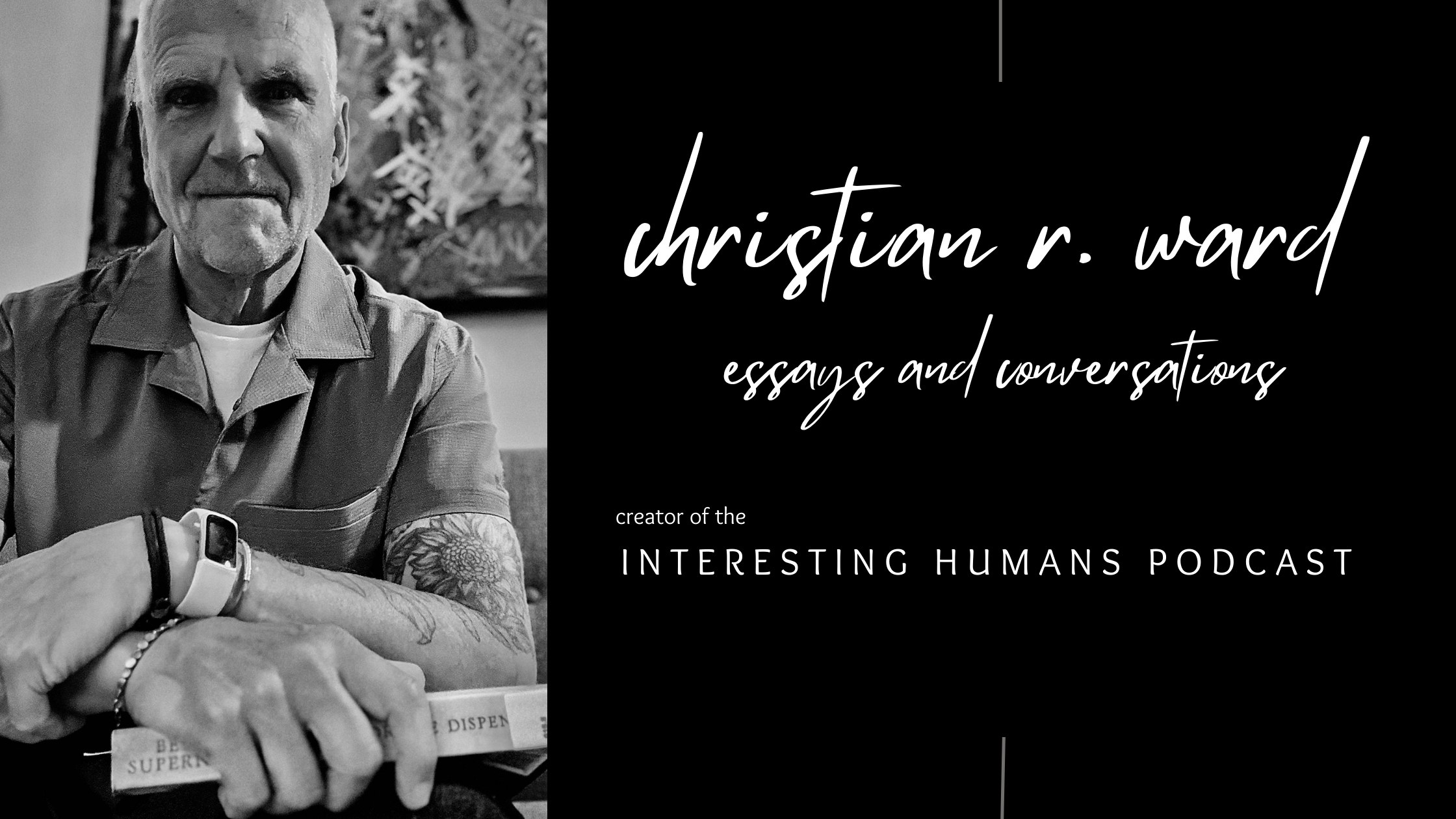Share this
What, really, are the qualities of a good man today? Toughness? Grit? Courage? The reliability of the one who comes home after a long day at the office, even if that office down the hall or in the basement, and earns the money that pays bills then expects dinner to be on the table? Is it simply the man who takes out the trash?
What sorts of exchanges are men and women making in the day-to-day bargaining of marriages and partnerships and how are they changing? What models do we have of good men in today’s Instagram-worthy world?
I started this podcast as a way to capture pieces of extraordinary conversations with ordinary people. I don’t travel in the same circles as Joe Rogan so the discussions I have are with friends and colleagues who lead “ordinary” lives. Yet they often yield extraordinary wisdom. These people share insights that seem to carry Universal weight.
A couple of weeks ago I had just such a conversation. Clint Roe, a colleague, who appears in today’s episode, shared some things going on in his life and I shared some things about my life. During the conversation, Clint revealed that he grew up one of three kids in a single-parent household led by his mom. In today’s episode, Clint wonders about the impact of growing up without a dad, nor close male role models, on him, his 26-year marriage and on his kids.

As a single dad, Clint has been reflecting on how to convey what he believes are the true core qualities of good men and how to be that to his two sons and daughter and in today’s meme-driven society.
Clint isn’t holding himself up as a paradigm of a great man; In fact, you might think he has antiquated ideas about men. In our conversation, Clint reflects on his experiences in the military, the failure and triumphs in his marriage, and his parenting and comes up with a story about what he thinks being a good man is about.
In 1990 the poet Robert Bly wrote a NYTimes bestselling book about men called Iron John. It was an immensely popular book about the fable of Iron John. I’ll read the first paragraph of the original preface. He says:
“We are living at an important and fruitful moment now, for it is clear to men that the images of adult manhood given by the popular culture are worn out; a man can no longer depend on them. By the time a man is thirty0five he know that the images of the right man, the tough man, the true man which he received in high school do not work in life. Such a man is open to new visions of what a man is or could be.”
What Bly wrote more than 30 years ago is again appropriate. I believe that aside from a few numbskulls who think a man is being a tough guy and treating women as objects instead of equals, a lot of men are confused about how to be. The images I grew up with — the Marlboro Man, the Archie Bunkers, Hulk Hogans, the James Bonds — don’t work anymore. Nor do the men expressing their feminine sides.
This confusion coincides with a cultural shift that impacts both men and women. Men are confused about their roles in families, in romantic relationships, as parents, and in the workplace.
Today is the first of what I hope will be more conversations about men and women and their interdependence in this changing world. Clint is open and even gets a bit choked up. He reveals mistakes, how numb he was to the news of his absent father’s death when he was just eight and how a mix between old-fashioned values with a nod toward modernization has helped him find his place as a man.
Links in Green above.
Intro and Outro Music provided by Wildes


